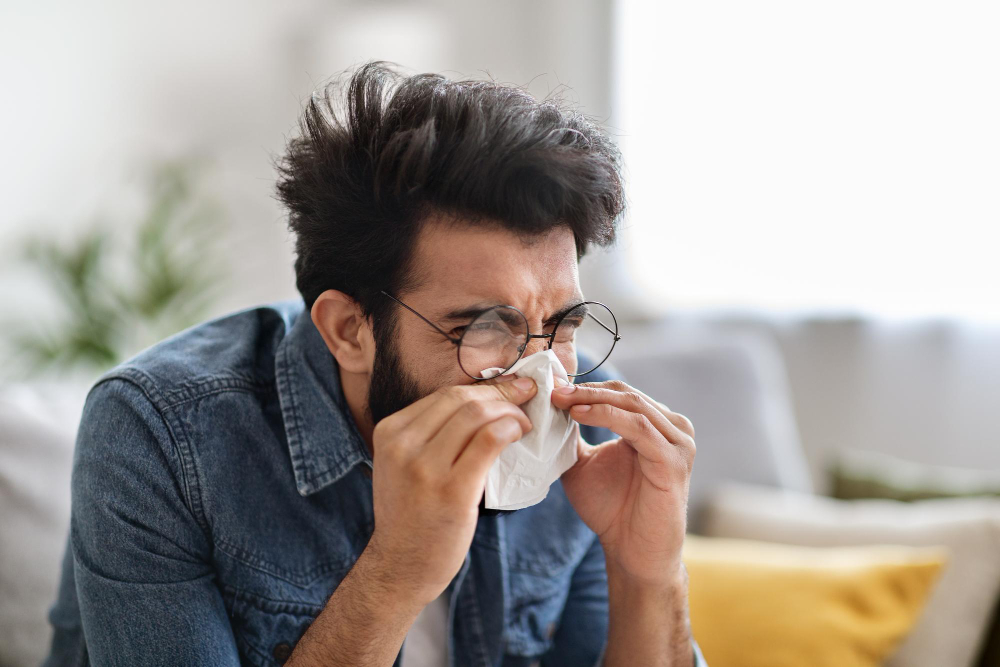What is Allergic Rhinitis?
Allergic rhinitis, also called hay fever, is a common condition. It happens when your body reacts to allergens like pollen, dust, or pet dander. As a result, your nose becomes inflamed. Many people experience sneezing, a runny nose, and itchy eyes. According to the CDC, millions of people worldwide deal with allergic rhinitis each year. Although it is not life-threatening, it can affect your daily life. Therefore, understanding allergic rhinitis is important for better health.
Common Symptoms of Allergic Rhinitis
Allergic rhinitis symptoms can vary from mild to severe. Often, they appear soon after contact with an allergen. For example, you may notice symptoms during certain seasons or after cleaning a dusty room. Common hay fever symptoms include:
Sometimes, symptoms can last for weeks if you keep being exposed to allergens. But with the right care, you can manage them well.
Causes and Risk Factors
Allergic rhinitis happens when your immune system overreacts to harmless substances. These substances are called allergens. Common causes include:
Some people are more likely to get allergic rhinitis. For instance, if you have a family history of allergies, your risk is higher. Living in areas with high pollen or pollution can also increase your chances. Children and young adults often develop symptoms, but anyone can be affected.
How Allergic Rhinitis is Diagnosed
If you have ongoing hay fever symptoms, your doctor can help. First, they will ask about your symptoms and medical history. Next, they may do a physical exam. Sometimes, allergy testing is needed. These tests can include:
With these tests, your doctor can find out what triggers your allergic rhinitis. Then, they can suggest the best treatment for you.
Treatment Options for Allergic Rhinitis
There are many ways to treat allergic rhinitis. Your doctor may suggest one or more of these options:
Always follow your doctor’s advice when using any treatment. In addition, talk to your healthcare provider before starting new medicines.
Lifestyle Tips and Prevention
Although you cannot always avoid allergens, you can reduce your risk. Here are some tips on how to prevent allergic rhinitis and manage symptoms:
In some cities, local weather reports share pollen counts. Therefore, check these reports and plan your outdoor activities when pollen levels are low.
When to See a Doctor
Most people can manage mild allergic rhinitis at home. However, you should see a doctor if:
Early treatment can prevent complications, such as sinus infections or asthma flare-ups. So, do not wait too long to seek help.
For personalized advice on managing allergic rhinitis, consult a healthcare professional at Sparsh Multi-Speciality Hospital. They can help you find the best plan for your needs.

